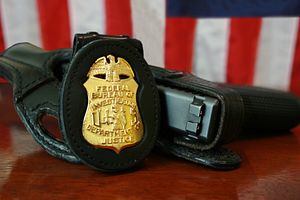An employee of the U.S. Federal Bureau of Investigation, facing charges that he had passed sensitive information to the Chinese government, pleaded guilty on Monday.
Kun Shan “Joey” Chun, a Chinese-born naturalized U.S. citizen, had been a technician at the FBI’s Computerized Central Monitoring Facility in the field office in New York City with top secret security clearance. Chun had started working at the FBI in 1997 and acquired his clearance in 1998.
According to the U.S. Department of Justice, Chun specifically pleaded guilty to “a criminal information charging him with acting in the United States as an agent of China without providing prior notice to the Attorney General.”
The criminal complaint against Chun, unsealed on Monday, specified that he had been charged with four counts of working to “falsify, conceal, and cover up by trick, scheme, and device a material fact.”
Chun had not disclosed his ties to the Chinese government and had “collected sensitive FBI information and caused it to be transmitted” to Chinese officials. He additionally engaged “in a prolonged and concerted effort to conceal from the FBI his illicit relationships with these individuals,” according to the Department of Justice.
Though Chun did not face charges for espionage, the case is likely to heighten concerns within the U.S. government about Chinese government attempts to recruit human sources with access to sensitive information.
Earlier this year, for example, a similar case grabbed headlines, involving a naturalized U.S. citizen of Taiwanese origin, Lt. Cmdr. Edward C. Lin, a U.S. Navy flight officer with signals intelligence experience aboard Lockheed Martin EP-3E Aries II reconnaissance aircraft. Lin, unlike Chun, faced charges for espionage. Lin had reportedly passed military secrets on to both China and Taiwan.
Chun’s activities and interactions with Chinese government officials, as described in a detailed press release on the case by the U.S. Department of Justice, detail how an unnamed Chinese official, simply referred to as “Chinese Official-1,” leveraged Chun’s ties to China.
For example, the release notes that Chun maintained financial interests in China, where he was affiliated with a company called Zhuhai Kolion Technology Company Ltd.
Before he was arrested in March 2016, Chun had offered to introduce an FBI undercover agent to Chinese agents. The complaint against him notes that Chun “also expressed a willingness to facilitate the passage of sensitive United States government information from the [undercover agent] to one or more of his Chinese associates.”

































